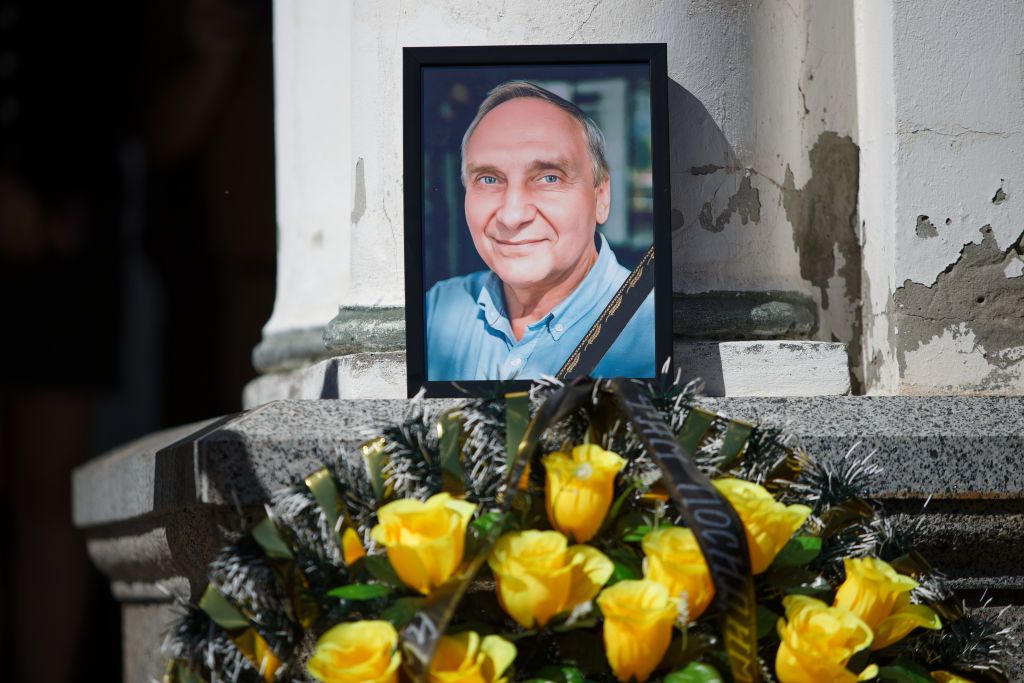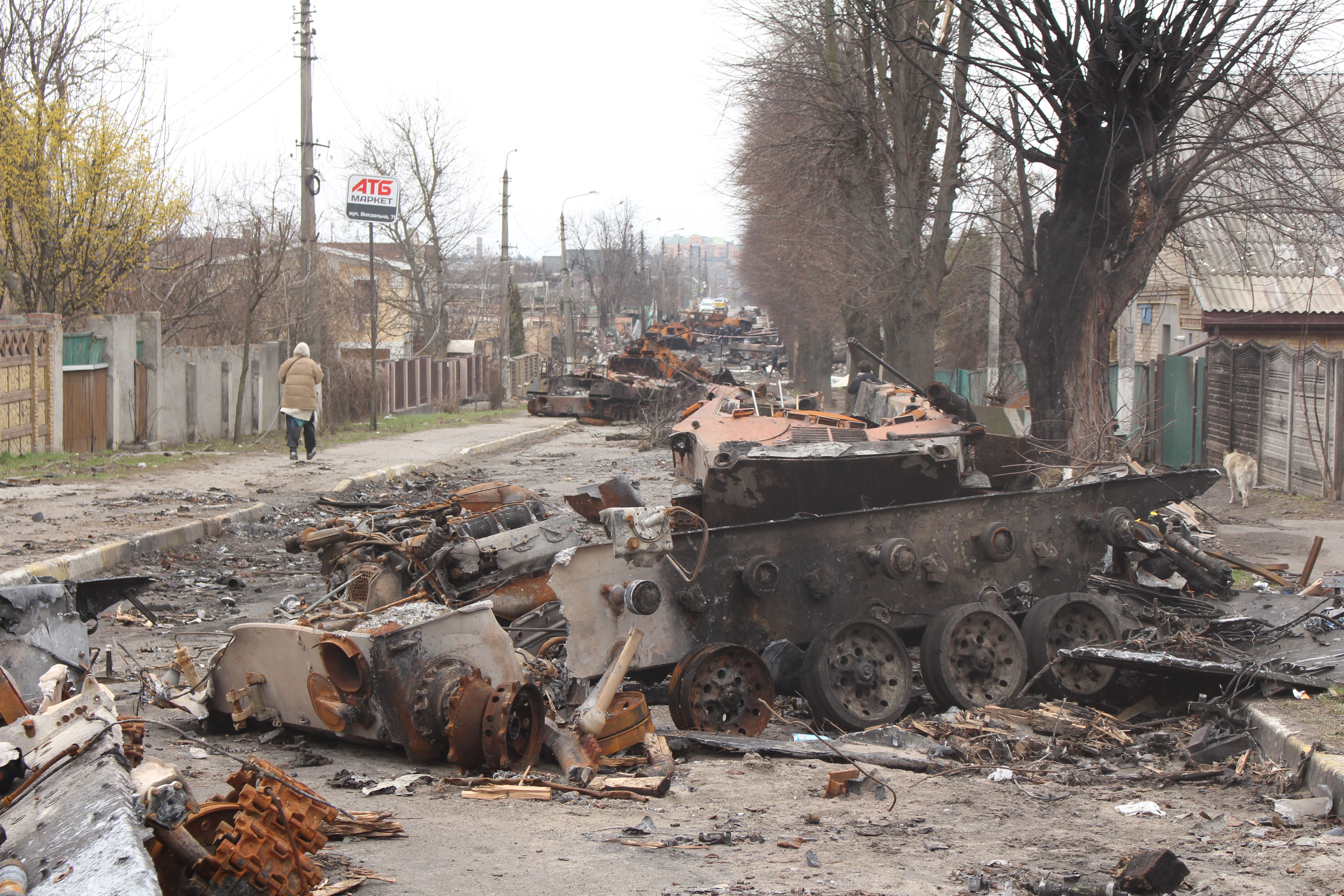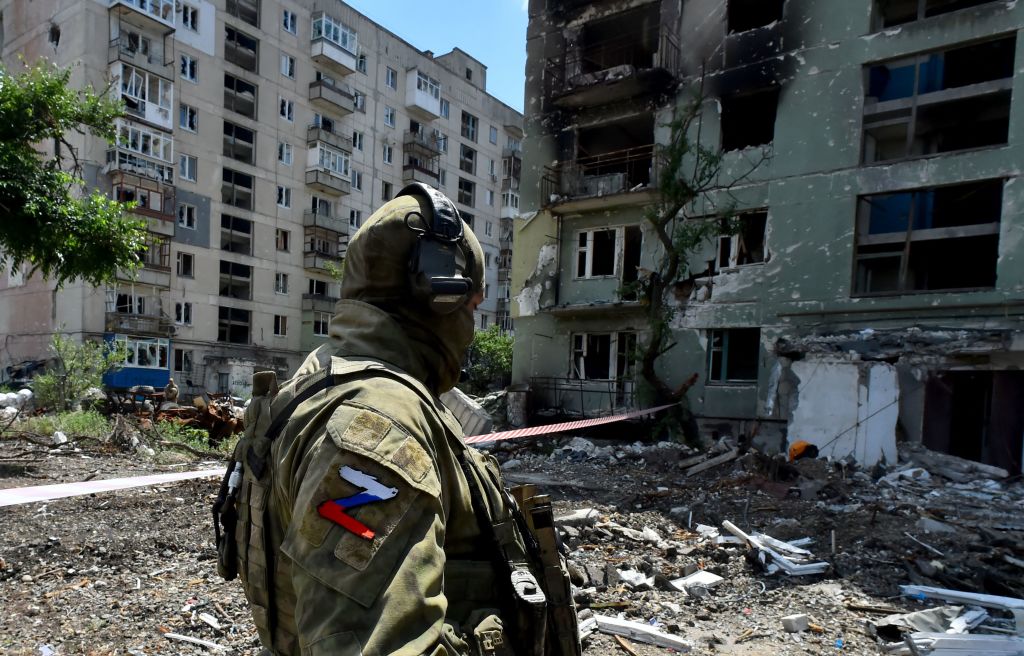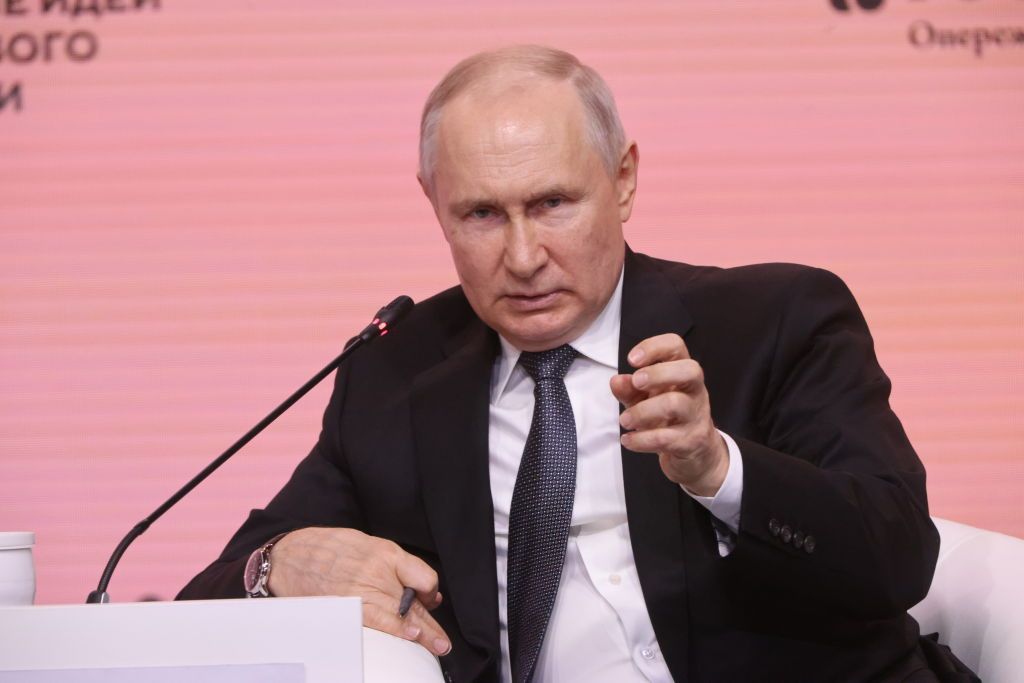Alexander Khrebet: Don’t write off Ukrainians living under Russian occupation

Standing at an intersection just outside Russian-occupied Donetsk in the town of Marinka two years ago felt bittersweet.
I could see the curtains in the windows of a nine-story residential building with my naked eye a few kilometers in the distance. The huge antenna tower I still remember standing next to as a child with my late father was also in my view.
The city was so close and yet impossibly far away.
It’s been almost a decade since I fled Donetsk after living under Russian occupation for two months. Going back before liberation would be suicide following the years I’ve spent reporting on Russian atrocities in the occupied territories. I’ve received death threats from former friends who defected to Russia’s side and now consider me a traitor to my own home.
Moving to several cities over the years, there is one thing I’ve always kept on me. The key to my family’s apartment in Donetsk. It’s the only thing I have left of what I packed into my backpack before leaving.
It doesn’t fit into the door’s lock anymore; the windows were shattered by a blast after an attack. To repair them my uncle had to break into the apartment and then replace the lock.
I’m not superstitious, but there are moments when I catch a glimpse of the long, slender key and it feels like it’s a sign that I’ll be able to walk the streets of my hometown again. The hope doesn't stay afloat thanks to a key that is now nothing more than a trinket, but in the tremendous efforts of Ukraine’s military, people, and its support around the world.
Last fall, during the successful Ukrainian military campaigns liberating the northeast and parts of the south I felt a certain euphoria I usually bar myself from.
The thrill of watching Ukrainian troops liberate the occupied parts of Kharkiv, Mykolaiv, and Kherson oblasts turned into the anticipation of Ukrainian forces marching toward Donetsk and visions of locals digging out the yellow-blue flags they’ve kept hidden for years.
I confess that I repeatedly envisioned the phrase “Donetsk has been liberated” and picturing Donetskies, what the locals are called, with their flags and embracing Ukrainian troops in a moment of sheer bliss.
I know this day will come and that you’ll watch the scene described above on the news as I rush there to report on it myself. But it isn’t just me who lives in anticipation of this moment.
Tens of thousands of locals still living in Donetsk do too. No matter how hard Russian propaganda strives to portray them as “Russians.”
It has always been tempting to write off the occupied parts of Donbas, the easternmost areas that have been occupied since 2014, as retrograde, hopelessly Soviet, fodder for pro-Russian sentiments, and inhospitable to new waves of efforts to reshape Ukraine.
It would be another grave error to make this assumption again, now that Russia has almost doubled the 2014 occupied area and the Ukrainian population under its control since last February.
As Russia’s war likely transitions to a protracted phase, and the rhetoric of support for Ukraine shifts from “as long as needed” to “as much as we can,” with rumors swirling that Ukraine may be pushed into peace talks and giving up territory, all of these people are at risk of being lost forever.
President Volodymyr Zelensky repeatedly says on the record that Ukraine will not concede land in exchange for fragile peace, but it’s now a Pulcinella’s secret that the president’s office is also trying to gauge society’s readiness to potentially make concessions in order to end the war.
We can’t leave these people behind.
Millions of Ukrainians remain behind the “Iron Curtain” of the occupied territories. For many of them, life has turned into an open-air prison, according to the people with whom I have spoken in both Donetsk and Luhansk oblasts.
Russian human rights defenders define the occupied areas as a “lawless black hole,” able at any time to suck in and break anyone who dares to think any other way than what the Kremlin wants.
Any pro-Ukraine beliefs, claims, or actions are enough to trigger a horrendous repression machine Moscow has been ruthlessly perfecting over the decades. And when Putin calls Ukraine “anti-Russian” out loud, he is sending a clear signal to everyone serving that machine to implement it.
Investigators and journalists peer behind the “Iron Curtain,” shedding light piece by piece on Russia's crimes against the Ukrainians living under Russian occupation. Yet, every piece of that curtain that the Ukrainian military tears down with its own blood and the power of Western hardware reveals the shocking scale of atrocities and sends a shudder through one’s veins.
The world learned about the suburbs of major Ukrainian cities not for their leafy terrain and slow-paced cozy lifestyle but for the hell unleashed by Russia in them during occupation. Bucha, Irpin, Borodianka, Yahidne, Izium... The list goes on and on.
It’s been 18 months since Ukrainian forces liberated parts of Kyiv, Chernihiv, and Sumy oblasts and just over a year since the liberation of parts of Kharkiv, Mykolaiv, and Kherson oblasts. Since then, groups of civilians have been touring the areas, talking to survivors of Russian war crimes survivors and witnesses to help law enforcement agencies handle the over 100,000 documented war crimes.
We only know echoes of what has been happening inside the parts of Donetsk, Luhansk, Zaporizhzhia, and Kharkiv oblasts Russia occupied after Feb. 24, 2022.
It’s almost impossible to imagine what has been happening under decade-long Russian control of other parts of Donetsk and Luhansk oblasts. I assume many don’t even dare to think about it.
No matter how hard Russia has tried to turn these territories into its own, the Ukrainians there are waiting for the blue and yellow flag of Ukraine to return to its rightful place. I know for a fact they are.
I also know they hope they will not be abandoned.
Of those who are waiting, some have even been brave enough to become the eyes and ears of the Ukrainian military behind enemy lines. Locals in the occupied areas have contributed to the majority of the Ukrainian strikes behind the Russian lines you may have read about or seen footage of.
Ordinary locals, like those who walk around you, have become extraordinary citizens, geolocating Russian ammunition depots and bases, tracking military hardware and personnel movements, and sharing this intelligence with Ukrainian forces.
I was impressed to hear a first-hand account of a man who undoubtedly shared the location of Russian troops in his hometown, knowing that a Ukrainian attack would damage his home given its proximity to the base.
None of them receive any financial reward for their actions. Any kind of money transfer to their bank account from Ukraine could jeopardize their lives. But they’re also carrying out these missions because they believe in Ukraine’s cause.
Locals in the occupied territories continue these efforts despite many being caught and sent to Russia-run torture chambers. We could only assume what Russia did to them as there have been no recorded cases of releasing those who got caught sharing such intel.
All this must be meticulously pondered in Kyiv, Washington, Brussels, and other capitals while crafting security guarantees for Ukraine. It's not just a matter of territories, of pushing borders a little further here or there.
The destinies of millions of Ukrainians are at stake – of those living, dead, and yet to be born. Writing them off would be a self-inflicted wound for democracy and another motivation for Putin and his partners in crime across the globe to continue plotting the bleakest chapters of our times.















